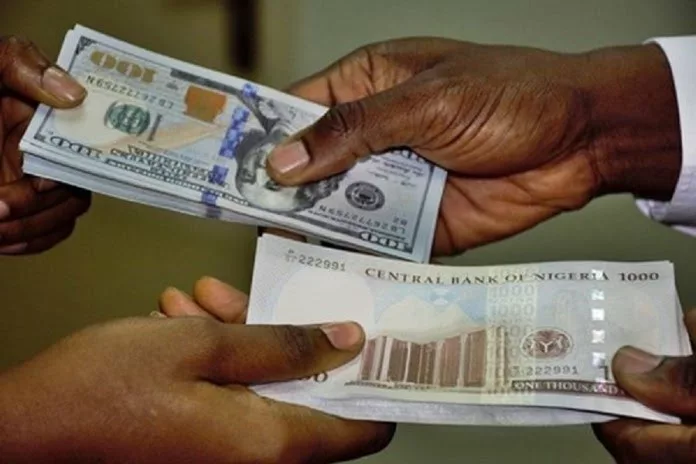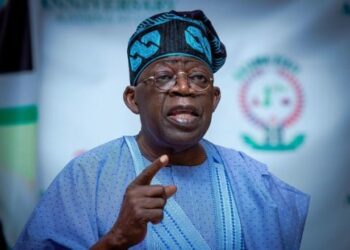The Nigerian naira experienced a further decline at the parallel market on Tuesday, despite the federal government’s crackdown on foreign exchange speculators.
The Bureau De Change (BDC) hubs in Abuja, Lagos, and Kano were raided, resulting in the arrest of some operators.
However, despite these efforts, the naira continued its downward trend, with the dollar being exchanged for ₦1,900 in Abuja and Kano, and ₦1,800 in Lagos. Additionally, the British Pound was exchanged for ₦2,250.
In contrast, at the official market, the naira recorded a marginal gain, closing at ₦1,551.24 compared to the earlier rate of ₦1,574.62, as reported by the Nigerian Autonomous Foreign Exchange Market (NAFEM).
The National Security Adviser, Nuhu Ribadu, directed the Nigeria Police Force, the Economic and Financial Crimes Commission (EFCC), the Nigeria Customs Service (NCS), and the Nigeria Financial Intelligence Unit (NFIU) to clamp down on forex market speculators. This move aimed to safeguard Nigeria’s foreign exchange market and combat the activities of speculators.
Ribadu emphasized the need to address individuals and organizations undermining the Central Bank of Nigeria’s efforts to stabilize the foreign exchange market. Despite these actions, some experts criticized the approach, suggesting alternative solutions to address market volatility.
In response, Ribadu highlighted the commendable efforts of the Central Bank of Nigeria to stabilize the foreign exchange market and stimulate economic activities. However, he noted that the effectiveness of these initiatives was being undermined by speculators, contributing to the depreciation of the Nigerian Naira.
To address these challenges, Ribadu announced a collaborative effort between the Office of the National Security Adviser (ONSA), the Central Bank of Nigeria (CBN), and key law enforcement agencies. This partnership aimed to identify, investigate, and penalize individuals and organizations involved in wrongful activities within the FX market.
But some operators expressed concerns about the approach, stating that it did not address the root cause of the forex crisis.
Economists, including Dr. Oluseye Ajuwon, criticized the clampdown on BDC operators, suggesting that it could exacerbate the problem.
They emphasized the need for a comprehensive economic plan to stabilize the forex market and foster overall development.
A think tank, Agora Policy, recommended a new policy approach to stabilize the forex market, emphasizing the importance of export diversification and capital flows.
They suggested that partnering with licensed BDC operators could help boost liquidity and address the current forex hike.





